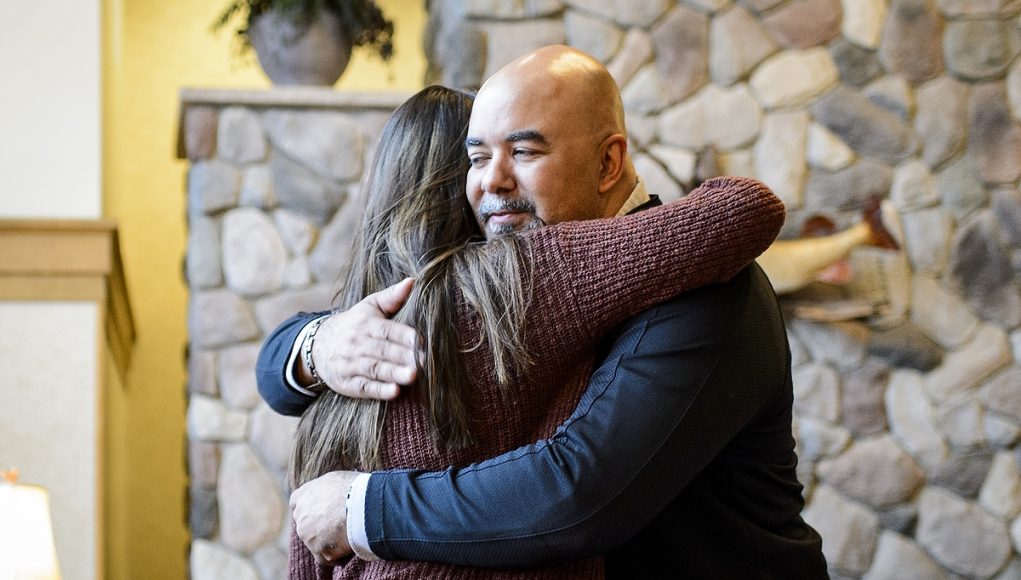On June 3, UW-Madison’s Information Technology Academy, a college pipeline program under the Division of Information Technology’s Academic Technology program (DoIT AT), graduated its first group of Native high school students from ITA’s Tribal Technology Institute (ITA-TTI) programs.
Four years ago, ITA created the Tribal Technology Institute, an outreach program that taught the academy’s curriculum to high school students in both the Oneida Nation and Lac du Flambeau communities in order to prepare them to study information technology in college.
“One of the common things in working with students from Native communities, especially from rural communities or communities further away than 35 or 40 miles, is quite often it’s just too far,” said program manager Christopher Kilgour.
Unlike the ITA-Madison program, which takes place person-to-person, both tribal institutes operate on a blended platform, combining online and face-to-face instruction.
“Students are given laptops loaded with all the software that we work with and teach. They’re also learning how to take computers apart and put them back together so they’re learning the troubleshooting, which definitely evens the playing field,” Kilgour said.
Students in the ITA-TTI program all begin as sophomores in high school and are trained in several technological areas such as website development, movie making, and coding. Program participants are also given ACT prep and assistance with college admissions.
“One of our main goals is to increase enrollment of diverse students at UW-Madison, but the other one is to increase diversity of the IT profession itself in Wisconsin, so that’s why a lot of their coursework has college preparedness but they also have training in technology,” said Anna Hildebrandt, senior university relations specialist for DoIT AT.

Last Saturday a total of 37 students graduated from all three programs, with 10 graduating from the tribal institutes, four from Lac du Flambeau and six from Oneida.
Upon completion of the program and acceptance into UW-Madison students are eligible for a full-tuition PEOPLE scholarship.
All 37 graduates have been admitted into colleges and universities. Three students from Oneida were admitted to UW-Madison along with 12 from ITA-Madison.
“The focus was to say here’s another opportunity to do more outreach in places where we have been typically underrepresented, ” said Kilgour.
The tribal institute has a total capacity of 30 students, 15 from each community, and interest is increasing with every new class, according to Kilgour, with the newly admitted class being almost at capacity.
This story has been updated.




























